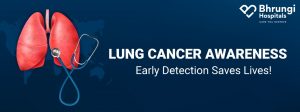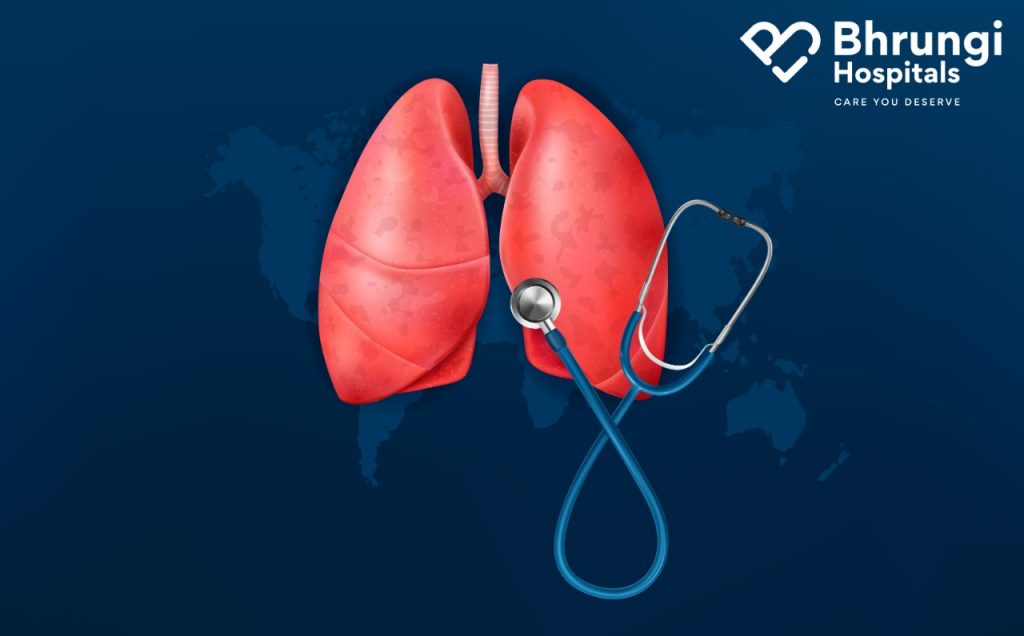
The month of November has been set aside to raise awareness about lung cancer. Lung Cancer Awareness Month was established in 1995 to raise awareness about patients’ and caregivers’ challenges. Lung Cancer Awareness Month is also a time to reflect on the progress made and the challenges still ahead in lung cancer prevention, detection, and treatment.
Damage to the lung’s normal cells causes lung cancer. To avoid overgrowth, the body programmes cells to die at a certain point in their life cycle. Cancer overrides this command, causing cells to multiply and grow when they shouldn’t. Lung cancer, which affects the lungs and other vital organs for breathing and gas exchange, has this pattern of cell overgrowth. Lung cancer can affect anyone, but it is significantly increased by cigarette smoking and pollution exposure.
Nonsmokers account for roughly half of all Indians diagnosed with lung cancer. In addition, indoor and outdoor air pollution, including coal and biomass burning, has increased lung cancer cases among nonsmokers in India.
Lung cancer deaths in India are primarily due to a lack of awareness, delayed diagnosis, and a lack of specialist care. As a result, most lung cancer cases in India are discovered at an advanced stage, with slim chances of survival.
Symptoms of Lung Cancer
Symptoms or signs of lung cancer can take years to appear, and in many cases, no symptoms appear until the disease has progressed. Lung cancer’s early symptoms are frequently misunderstood and dismissed. These are some of them:
Coughing — A cough that persists for more than two weeks or coughing up blood Infections of the chest, such as bronchitis or pneumonia
Breathing problems — wheezing or shortness of breath
Chest discomfort — A sudden and severe discomfort in the chest.
Appetite changes — Many illnesses, including cancer, cause appetite changes.
Weight loss — Tell your doctor if you’re losing weight for no apparent reason. Excessive tiredness or weakness is a common cancer symptom.
Late signs and symptoms of lung cancer:
- Neck and facial swelling
- Aching bones or joints
- Headaches and dizziness
- Lumps in the neck
- Pain and swelling around the chest
Consult a cancer specialist if you have any of the above symptoms or are at high risk of developing lung cancer. Early detection of lung cancer can save a person’s life and increase their chances of survival.
Risk Factors of Lung Cancer
Several risk factors have been discovered in studies that may increase your chances of developing lung cancer. These are some of them:
Smoking- Cigarette smoking is the most severe risk factor for lung cancer. Tobacco smoke is a toxic mix of over 7,000 chemicals, at least 70 of which are cancer-causing. As a result, lung cancer is 15 to 30 times more likely in cigarette smokers. Secondhand smoke is equally harmful and can lead to lung cancer.
Chemical exposure- Radon is a naturally occurring gas found in rocks and soil that can become trapped in homes and buildings. Although it cannot be seen, tasted, or smelled, it can cause lung cancer.
Other Substances- Asbestos, arsenic, some forms of silica, and chromium are just a few of the chemicals that can harm your lungs and raise your risk of lung cancer.
Family history- If your parents, brothers or sisters, or children have had lung cancer, your risk of lung cancer may be increased.
Prevention
Although there is no such method to avoid lung cancer, you can reduce your risk by following these steps:
Stop Smoking- It is now or never to stop smoking. Even if you’ve been a smoker for a long time, quitting smoking lowers your risk of lung cancer. Consult your doctor about methods and quit-smoking aids that can help you quit smoking. Alternatives to nicotine include nicotine replacement products, medications, and support groups.
Avoid carcinogens at work- Protect yourself from toxic chemicals at work by taking precautions. Observe your employer’s safety precautions. If your doctor recommended a face mask for protection, for example, wear it at all times. Consult your doctor about additional safety precautions you can take at work. For instance, you’re more likely to develop lung cancer due to workplace carcinogens if you smoke regularly.
Eat a diet full of fruits and vegetables- Choose a well-balanced diet that includes a variety of fruits and vegetables. The best sources of vitamins and nutrients are those obtained from food. Vitamin pills in large doses should be avoided because they can be harmful. For example, researchers gave beta carotene supplements to heavy smokers to reduce their risk of lung cancer. But, according to the findings, the supplements increased the risk of cancer in smokers.
Lung Cancer care at Bhrungi Hospital
Do you have any symptoms of lung cancer? For an expert opinion and world-class treatment, meet with one of our highly trained and experienced oncologists. Our Cancer Center is equipped with cutting-edge technology that produces excellent results. For example, video-Assisted Thoracoscopic Surgery is used in 50% of lung cancer surgeries at Bhrungi Hospital. This is a keyhole surgery that helps patients recover faster by reducing postoperative pain, avoiding scars, and reducing hospital stays.“ Keep in mind that you aren’t dying from cancer; you are living with it.”






